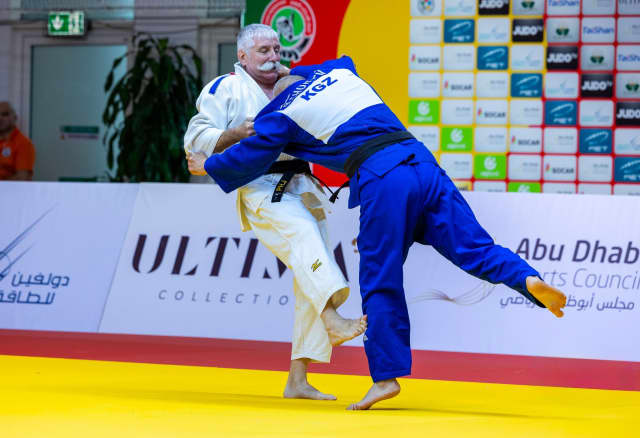"I am the head of the veterans commission at national level. We are also represented on the executive committee of the federation. We have two technical delegates on the ground who organise everything and they are not at all unknown, Cathy Arnaud, double world champion and Olympic medallist, and Philippe Taurine who was a successful athlete before winning the Veterans World Championships a few years ago. They know their subject well and it is a great chance to have them working for the development of the sector in France.
We have put in place a framework and a structure and for more than ten years we have had relays in the French regions as well. This allows us to transmit information locally. Our working group on veterans is active, among other things, on the development of women's practice, regarding competition of course but also thinking about recreational judo. Women's practice is very important and we are working hard to increase participation.
It must be said that judoka over thirty represent an incredible reservoir. We must never forget that once we become judoka, we remain judoka all our lives. Here we are at the world championships and it is very important but there is more than just competition in the lives of veterans.
At the beginning, we began with a group of friends in France. It was one of us, Lionel Hérin, who gave us the inspiration to move forward. There is so much to do in this sector for experienced judoka. In fact, we must never forget that veterans are fundamentally involved in clubs and local committees. They are teachers or sport leaders; they have already a situation in life. Often they are simply judo lovers and are ready to give back a lot. In all this, there is a crucial notion which is that of pleasure.
A few years ago, the late Laurent Commanay (https://www.ijf.org/news/show/the-judo-family-mourns-laurent-commanay) also did a lot towards establishing a real strategy for veterans.
As I said, the pleasure part is fundamental. There is also the whole health dimension and prevention of health risks linked to the practice of senior judoka. It is an approach that is slightly different from health sports for young people, but it is inseparable from the practice of judo.
Judo is about sharing, helping each other and being open to others. By caring for veterans, we sow seeds for future generations. For example, we organise trans-generational exchanges. It is important, even and especially for the youngest to have the eye of the elders. We understood this very well at the national level.
There is still work to do and that is also exciting. Veterans who come to participate in competitions like this world championships often have to self-finance. We are therefore losing part of our audience, but I am convinced that we can do a lot and why not also include the finding of sponsors. Mutual health insurance companies could be interested because by doing judo, we participate in the prevention of health problems as I have already highlighted.
What is most important to me is that we are helping to build what we commonly call the big judo family. We need everyone for our family to thrive.”



